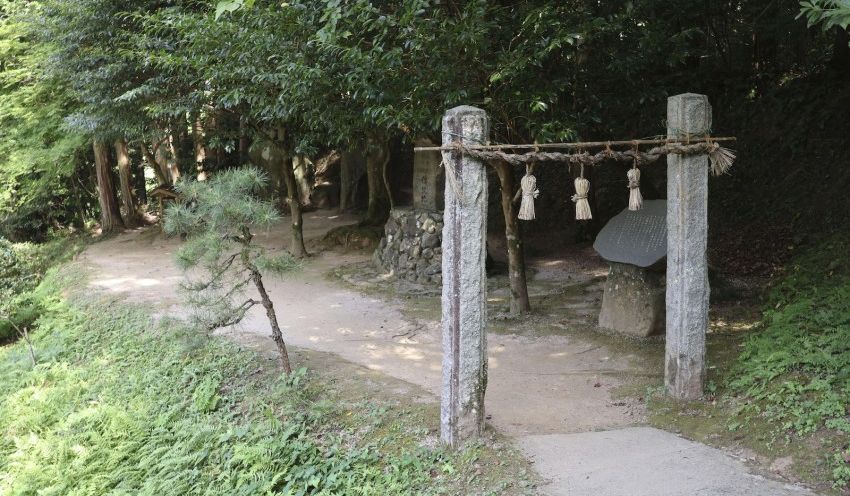发布时间:2024-08-26 人气:0 作者:郝

In a place described in Japan's ancient chronicle of myths and legends as a boundary between this world and the next, there is a mailbox for sending letters addressed to deceased loved ones.
The place -- Yomotsu Hirasaka -- located in Matsue in western Japan's Shimane Prefecture, holds a ceremony every June to ritually dedicate the "Letters to Heaven" to their intended deceased recipients in a bonfire. As many as 12,000 letters were received over the past year at the site in the city's Iya district, said to be the "entrance to the underworld."
In Japan, the number of places that accept such letters to the deceased is spreading to various regions of the country, with grief experts explaining that the writing and sending of such letters helps heal bereavement.
At Yomotsu Hirasaka, mentioned in the early parts of the "Kojiki," or "Record of Ancient Matters," a handmade mailbox stands in a secluded spot at the top of the hill on a forest road. The idea was conceived by a local resident who often saw people visiting the legendary site to honor their dearly departed loved ones.
"I thought we'd be going home as just the two of us again," Yachiyo Hitachi, 65, of Izumo, Shimane Prefecture, said referring to her late husband Minoru after posting a letter in his memory.
The couple would drink together and listen to their favorite songs. They would go cherry-blossom viewing on their wedding anniversary and felt happiness, but in June of last year, Minoru was diagnosed with throat cancer.
He was in and out of the hospital, lost his voice and became unable to walk before dying in March this year, one day after the doctor had informed Yachiyo that her husband's condition had stabilized.
Yachiyo had trouble sleeping, losing joy and motivation in her life. It was then that a concerned friend introduced her to "Letters to Heaven."
She wanted to talk with her husband about many things, including trips they had planned but never made. As she wrote down her thoughts, Yachiyo felt happy recalling the time they had spent together.
On the day of ritual burning, she smiled, saying, "I want to deliver my letter next year too to let him know how I spent my year."
In 2018, director Kento Shimizu made a short film called "The Drifting Post" about a mailbox originally installed in a cafe in Rikuzentakata in Iwate Prefecture three years after the 2011 earthquake-tsunami disaster that devastated wide areas of the Tohoku northeastern region.
Letters began to pour in -- not only as a type of therapy for people who had lost loved ones in the disaster but for anyone suffering from grief due to tragedy and loss. In April, the mailbox was moved to a nearby temple, where letters continue to be posted today.
The "Green Post" at the Daishoji Temple in Maizuru, Kyoto Prefecture, was started when a letter addressed to a deceased child was found in the temple box for monetary offerings. During the bonfire ritual, there is an opportunity for participants to share their experiences with each other.
The Setouchi International Art Festival on Awashima Island in Mitoyo, Kagawa Prefecture, meanwhile, included an installation in 2013 called the "Missing Post Office" to receive undeliverable letters.
An old post office building was renovated and used only for one month during the triennial festival showing contemporary artwork, but letters continued to arrive later, and it continues to operate today.
The Missing Post Office receives mail from around the globe. Addressees include deceased individuals, long-lost love interests or even the senders themselves.
According to Yoshiko Takaki, director emeritus of the Institute of Grief Care at Sophia University, the number of people who are unable to overcome the grief of bereavement is increasing because the nuclear family has become increasingly common in Japan, allowing fewer occasions to mourn the death of close relatives.
Writing letters is an effective way, Takaki said, "to accept grief by reexamining the relationship with that person and realizing new feelings of gratitude and expressions of regret."












